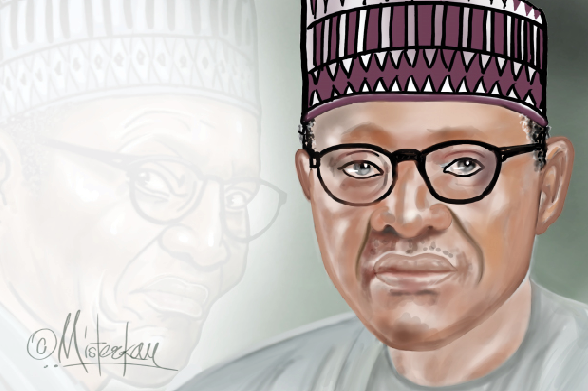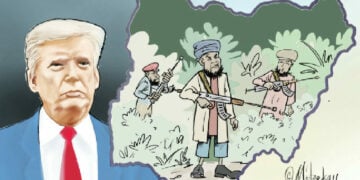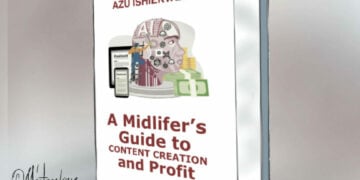Last week, the death of former President Muhammadu Buhari in London brought a defining chapter of Nigeria’s postcolonial history to a close. His remains, ferried with dignity, were buried swiftly in his ancestral home of Daura in Katsina State. The passing of any leader invites pause, but Buhari’s death demands a deeper reflection, not merely on the man himself, but on what his life reveals about the arc of leadership, character, power, and nationhood.
To those who adored him, Buhari was the stoic soldier, the incorruptible disciplinarian who never wavered from his moral compass. To his critics, he was a detached and inflexible leader, whose policies left much of the country suspended between nostalgia and frustration. Yet, whether friend or foe, it is impossible to ignore the central role he played in Nigeria’s story. Twice he ascended to the peak of power, first by the barrel of a gun in 1983, and then, more triumphantly, through the ballot in 2015.
Like Cincinnatus, the Roman general summoned from his farm to rescue the Republic, Buhari’s return to office in 2015 bore the weight of a desperate public, a nation weary of corruption and chaos. But history reminds us that men who return to power after long absences often govern not the present, but their memories of the past. Buhari’s second coming would be shaped less by the dynamism of modern governance and more by the rigid lines of a worldview formed decades prior. He was, in this sense, reminiscent of Xerxes of Persia, a man who inherited a throne, carried the confidence of legacy, but misjudged the complexity of the Greek world. Like Xerxes at Thermopylae, Buhari often mistook resolve for strategy.
The Soldier Who Would Be President
From the beginning, Buhari’s bearing reflected his military pedigree. Order, hierarchy, and control were his native grammar. As military head of state in the early 1980s, he ruled with a Spartan ethic – his infamous War Against Indiscipline evoked images of Robespierre’s Reign of Virtue, punishing both the guilty and the unfortunate in an effort to sanitize the republic. He imposed structure, but sometimes at the expense of empathy.
Buhari believed in punishment as pedagogy. Queue jumpers, tax evaders, and dishonest officials were disciplined in public view. While some found his methods draconian, others welcomed the discipline as an antidote to the decadence of the era. Like Lycurgus of Sparta, who reshaped a society by force and example, Buhari trusted law and order above all. But history, like governance, is rarely kind to rigidity. Buhari’s regime was overthrown in 1985, and he retreated to years of quiet, a man out of time.
Yet, the image endured. His 2015 election was not just a political event but a symbol: the return of an elder, summoned like Nestor in Homeric myth, trusted to bring wisdom where others had failed. But leadership in the 21st century demands more than austere virtue. It requires adaptability, curiosity, and the ability to learn anew.
He struggled here. His economic decisions – closing borders, resisting market liberalization, and maintaining multiple exchange rates – echoed an older paradigm. He treated the Nigerian economy like a besieged fortress, reminiscent of Emperor Justinian’s response to plague-stricken Byzantium: defensive, inward, and reactive. And his silences, during national tragedies, protests, or economic upheaval, often amplified uncertainty. Like Charles I of England, whose piety could not redeem his political deafness, Buhari often confused moral certitude for political clarity.
And yet, like Marcus Aurelius, the Roman emperor-philosopher, Buhari bore his role with a kind of Stoic resignation. He did not enrich himself, nor did he flinch from austerity. His personal lifestyle was a living rebuke to the excesses of many around him. Even his harshest critics concede this: the man was not corrupt. But again, virtue without vision may restrain a leader from vice but cannot necessarily propel a nation toward greatness.
A Mirror to the Nation
Clayton Christensen, the late Harvard professor and moral philosopher, asked a piercing question in his seminal work: “How will you measure your life?” He warned against the trap of defining success in material terms, advocating instead for a deeper, character-driven approach: measuring success by the strength of relationships, the choices we make in moments of solitude, and the legacy we leave in others.
In this framework, Buhari’s life was not one of failure, but of limits. He did not betray his values; rather, he failed to update them to meet new challenges. He governed not with ill-will, but with an unbending fidelity to a version of Nigeria that no longer existed. That fidelity was both noble and tragic.
Buhari’s passing, therefore, must become a mirror for every Nigerian – young or old, rich or poor, political or apolitical. We must ask: are we, too, prisoners of outdated thinking? Do we mistake integrity for efficacy, or silence for wisdom? Are we building the kind of future our children can inherit, or are we entrenching the past with newer vocabulary?
As the mourners continue to visit Daura, they should not only go to pay tribute to a departed leader, but also take a moment to engage in self-examination. Because in the death of a public man lies a private calling for the rest of us: how are we leading our own lives? With what values, and toward what end?
Legacy, Mortality, and the Measure of a Life
History is the final courtroom. It judges not with sentiment, but with time. And it is to that courtroom Buhari now proceeds.
He leaves behind a nation still searching for coherence, economically strained, politically fragmented, but also rich with possibility. His legacy is a mosaic: a few bright stones of personal virtue, surrounded by the murky patterns of policy indecision, economic nationalism, and administrative detachment.
Yet his death, like those of leaders before him, may serve a function his life could not. It invites us to ask the deeper questions we often avoid: What does leadership mean in a society burdened by inequality and cynicism? What kind of country do we wish to become? And what personal responsibilities do we carry in shaping that outcome?
The lesson of Pericles, who governed Athens in its golden age, remains relevant: greatness is not achieved through charisma alone, but through building institutions that endure. Buhari, for all his sincerity, could not modernize Nigeria’s institutional soul. But he reminded us, especially by his personal example, that integrity matters, that frugality is a virtue, and that public office must not become private empire.
His death should awaken us to our own mortality, to the finitude of power and breath. The Qur’an teaches that “Every soul shall taste death.” What varies is the legacy left behind. Let his memory not be reduced to partisanship. Let it become a provocation: to live better, to lead with humility, to grow with our times.
So, as Nigeria continues to mourn and measure the man who has now returned to the earth, let us not be content with nostalgia or condemnation. Let us instead rise to the challenge that his death sets before us.
Because in the end, titles will vanish, positions will dissolve, and the crowds will disperse. What will remain, for Buhari, for us all, are the quiet echoes of how we lived, whom we served, and what we stood for.





